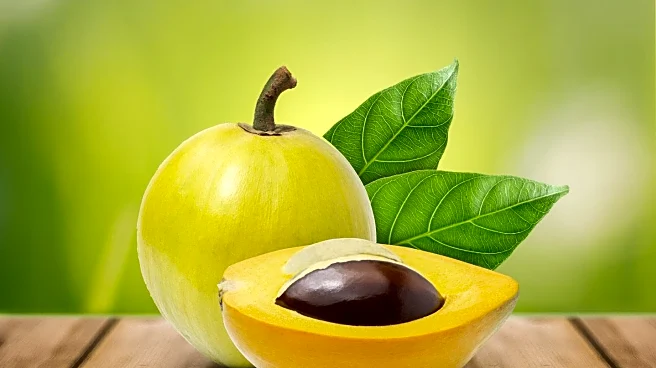What's Happening?
Gordana Radovic, a prominent Slow Food activist and a key figure in promoting the culinary heritage of Herzegovina, has passed away. Known for her deep commitment to the Slow Food movement, Radovic dedicated her life to preserving and sharing the rich
food traditions of Bosnia and Herzegovina. Her work involved connecting local producers with the global community, ensuring that the unique flavors and stories of her region were celebrated and preserved. Radovic was instrumental in initiatives such as Terra Madre Balkans, which aimed to bring the food of the Western Balkans to a broader audience, including efforts to present it in the European Parliament. Her sudden passing has left a significant void in the community she served so passionately.
Why It's Important?
Radovic's contributions to the Slow Food movement and her efforts to preserve the culinary traditions of Herzegovina have had a lasting impact on the region. By promoting local food stories and connecting them with a global audience, she played a crucial role in cultural preservation and economic support for local producers. Her work not only highlighted the rich culinary heritage of the Balkans but also fostered a sense of unity and peace through food, transcending regional conflicts. Her passing is a significant loss to the Slow Food community and the cultural landscape of Herzegovina, as she was a key advocate for food justice and cultural heritage.
What's Next?
The Slow Food community and local stakeholders in Herzegovina may seek to honor Radovic's legacy by continuing her work in promoting and preserving the region's culinary traditions. This could involve organizing events, workshops, and initiatives that align with her vision of food as a unifying force. Additionally, there may be efforts to document and share her contributions to ensure that her impact is remembered and built upon by future generations.
Beyond the Headlines
Radovic's work highlights the broader cultural and ethical dimensions of the Slow Food movement, emphasizing the importance of food as a means of cultural expression and preservation. Her efforts demonstrate how culinary traditions can serve as a bridge between communities, fostering understanding and cooperation. Her legacy may inspire further exploration of how food can be used to address social and cultural challenges, promoting peace and sustainability.

















